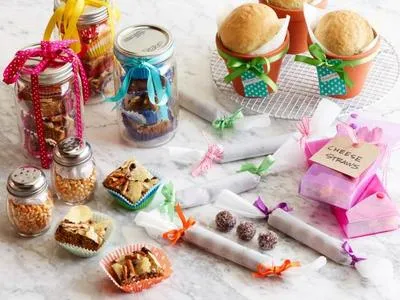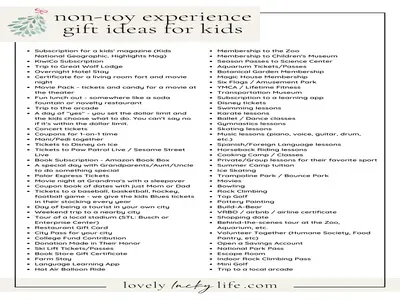Top 10 Tips for a Zero-Waste Christmas
Zero-waste Christmas tips focus on minimizing waste during the holiday season, encouraging sustainable practices that benefit both the environment and our communities. By adopting mindful strategies, individuals can enjoy festive celebrations while significantly reducing their carbon footprint.
To embrace a zero-waste Christmas, start by rethinking gift-giving. Opt for experiences rather than physical items, such as cooking classes or concert tickets, which create lasting memories without adding to clutter. If you prefer tangible gifts, consider handmade items or locally sourced products that support small businesses. Wrapping presents can also be eco-friendly; use fabric, old newspapers, or reusable gift bags instead of traditional wrapping paper. Additionally, plan holiday meals carefully to avoid food waste—make a list before shopping, and use leftovers creatively. Decorate sustainably by incorporating natural elements like pinecones and holly, and consider a living tree that can be replanted. By applying these zero-waste principles, you can enjoy a joyful holiday season while protecting the planet for future generations.

 View All
View AllDIY Gifts - Eco-friendly, handmade gifts reduce waste and personalize holidays.

 View All
View AllUpcycled Decor - Creative decor made from recycled materials, promoting sustainability.

 View All
View AllWrapping with Fabric - Use fabric scraps for sustainable, reusable gift wrapping.

 View All
View AllPlant-Based Meals - Sustainable, delicious, and eco-friendly festive plant-based recipes.

 View All
View AllDigital Cards - Eco-friendly tips for a sustainable Christmas celebration.

 View All
View AllSecond-Hand Shopping - Sustainable gifts, unique finds, reduce waste, support local.

 View All
View AllEdible Gifts - Delicious, sustainable treats that minimize waste this Christmas.

 View All
View AllHomemade Ornaments - Craft eco-friendly ornaments using recycled materials for Christmas.

 View All
View AllExperience Gifts - Gifts of experiences minimize waste and create lasting memories.
Top 10 Tips for a Zero-Waste Christmas
1.
DIY Gifts
Pros
DIY gifts are personal
eco-friendly
cost-effective
promote creativity
reduce waste
and foster meaningful connections through thoughtful
handmade items.
Cons
DIY gifts can be time-consuming
may lack polish
require specific skills
and could result in waste if not executed well.
2.
Upcycled Decor
Pros
Upcycled decor promotes sustainability
reduces waste
fosters creativity
adds unique charm
supports local artisans
and encourages mindful consumption during the holidays.
Cons
Upcycled decor may lack uniformity
require significant time and effort
and may not appeal to everyone's aesthetic preferences.
3.
Wrapping with Fabric
Pros
Wrapping with fabric is eco-friendly
reusable
versatile
adds a personal touch
and reduces waste
making gifts more sustainable and unique.
Cons
Wrapping with fabric can be costly
requires care for cleaning
may not always fit awkwardly shaped gifts
and lacks traditional presentation.
4.
Plant-Based Meals
Pros
Plant-based meals are eco-friendly
reduce waste
promote health
support local farmers
and offer diverse flavors
making them perfect for a sustainable Christmas.
Cons
Plant-based meals can lack variety
may require expensive ingredients
and can be less satisfying for some
potentially leading to cravings or deficiencies.
5.
Digital Cards
Pros
Digital cards reduce paper waste
are customizable
easily shareable
environmentally friendly
cost-effective
and can be stored and revisited anytime.
Cons
Digital cards can feel impersonal
rely on technology
may contribute to screen fatigue
and lack the tactile charm of physical cards.
6.
Second-Hand Shopping
Pros
Second-hand shopping promotes sustainability
reduces waste
saves money
supports local businesses
and offers unique
one-of-a-kind gifts with a story.
Cons
Limited selection
potential quality issues
time-consuming searches
sizing inconsistencies
and possible lack of returns can make second-hand shopping challenging.
7.
Edible Gifts
Pros
Edible gifts are thoughtful
personalized
reduce waste
promote sustainability
and offer enjoyable experiences
making them perfect for a zero-waste Christmas.
Cons
Edible gifts can spoil quickly
may not suit all tastes
and can lead to overindulgence or waste if not consumed promptly.
8.
Homemade Ornaments
Pros
Homemade ornaments promote creativity
reduce waste
save money
add personal touch
create lasting memories
and encourage sustainable practices during the holidays.
Cons
Homemade ornaments can be time-consuming
require crafting skills
may not last long
and can clutter if not stored properly after use.
9.
Experience Gifts
Pros
Experience gifts promote memories over materialism
reduce waste
foster connection
and encourage activities that enrich lives without cluttering spaces.
Cons
Experience gifts can lack tangible value
may not suit recipient preferences
require planning
and could lead to scheduling conflicts or cancellations.